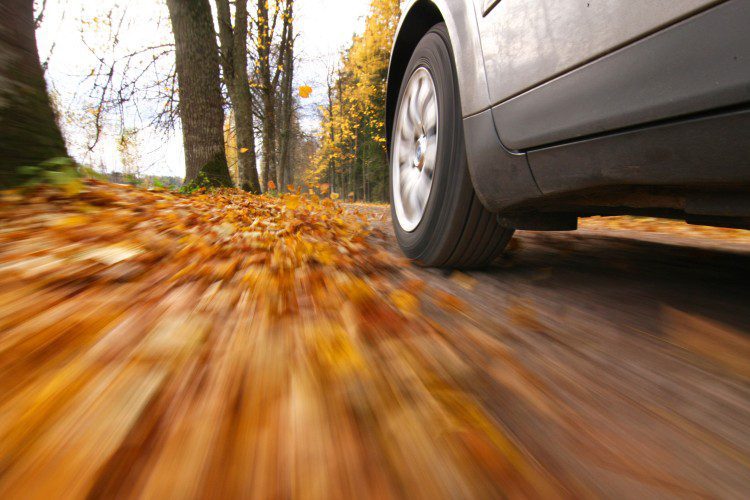
State by State Car Insurance Requirements and What They Mean
Each state in the U.S. has the right to regulate car insurance requirements for their state citizens, meaning that the car insurance requirements in your state can be vastly different than in your neighbor’s. Minimum car insurance requirements are usually based off of the state’s individual laws and regulations when it comes to vehicles and auto crashes.
Fault vs. No Fault Car Insurance
The first main difference is between fault and no-fault states. In fault states, a driver who causes a car accident is responsible for paying for the damages and injuries both parties sustained. Many states operate on a percentage basis when determining fault. This means that the higher percentage of fault you are pinned with, the more compensation you may pay to another party.
In no-fault states, each driver involved in an accident is responsible for their own damages and injuries, no matter who caused the accident.
Because of this, fault states and no-fault states often have slightly different requirements. No-fault states often require drivers to carry personal injury protection, which provides compensation for the driver’s and passengers’ medical bills after an accident, no matter who is at fault. This requirement isn’t often included in minimum requirements for fault states.

Most states, whether fault or no-fault, require these minimum coverages:
-
Bodily Injury Liability: This liability coverage provides compensation for medical expenses related to any bodily injury a driver may cause while operating the insured vehicle.
-
Property Damage Liability: This liability coverage provides compensation for any property damage a driver may cause while operating the insured vehicle.
Liability insurance only covers injuries and damages that a driver may cause to someone else. This does not cover the insured driver’s vehicle or injuries.
Some states also require an amount of uninsured/underinsured motorist, although this requirement can be waived if the driver writes in their policy that they do not want it. Uninsured/underinsured motorist provides compensation for accidents involving a driver not carrying enough car insurance to cover the damages.
For example, Ohio and Indiana both require the same amount of liability coverage, which is:
-
$25,000 bodily injury liability per person
-
$50,000 bodily injury liability per accident
-
$25,000 property damage liability
This is the absolute minimum you must carry in order to drive legally in these states.
West Virginia has similar requirements, but also requires some uninsured motorist coverage.
West Virginia Car Insurance Requirements
-
$20,000 bodily injury liability per person
-
$50,000 bodily injury liability per accident
-
$25,000 property damage liability
-
$25,000 uninsured motorist per person*
Keep in mind that these are minimum requirements and don’t represent the amount of insurance you should carry on your vehicle.
What is a Tort State?
A tort state is a version a fault state when it comes to car insurance. Drivers who are determined at fault for an accident may be required to provide compensation to the accident victim for medical bills, pain and suffering, loss of wages and more. Ohio, West Virginia and Indiana are examples of tort states.
Tort states often base compensation for accidents based on percentage of fault. How these percentages affect compensation vary between states. Take West Virginia, for example. Say you are determined to be 20% at fault for an accident. This means that you are responsible for covering 20% of the damages. You may be able to seek compensation from the other party, but the most you will be able to receive is 80% of the damages.
States also vary depending on their liability bar. In West Virginia, a driver who is 50% or more at fault for an accident cannot seek compensation from the other party.
On the other hand, Ohio’s liability bar is 51%, meaning a driver who is 50% or less at fault may seek compensation from another party.
Medical Payments vs. Personal Injury Protection
Another type of car insurance that differs between states is medical coverage. There are two types of medical coverage a state may offer: medical payments coverage and personal injury protection.
Both coverages offer compensation for medical bills the driver and their passengers may face after an accident. These coverages don’t depend on fault, so even if you cause an accident, medical payments coverage or personal injury protection will help with you and your passenger’s medical expenses related to the accident.
The only difference between medical payments coverage and personal injury protection is that personal injury protection, or PIP, goes further than just medical bills. PIP can also help with lost wages if you or a passenger are unable to work due to the accident.
PIP is required in some states, such as Florida, Hawaii, Kansas, Kentucky, Massachusetts, Michigan, Minnesota, New Jersey, New York, North Dakota, Pennsylvania and Utah.
In other states, PIP is offered but not required, such as in Kentucky, Maryland, Texas, Virginia, Washington and Indiana. PIP is not available in West Virginia or Ohio.
Tags: auto insurance
